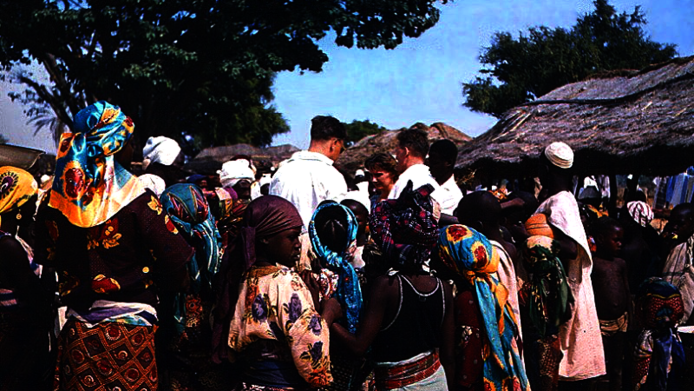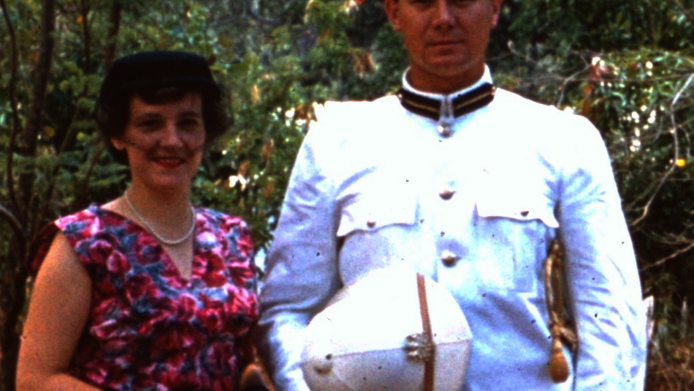New lessons from the “cradle of development cooperation”

Colin Baker spent large parts of his life in Nyasaland – today’s Malawi. As a British colonial official, the lawyer served as district commissioner of a remote rural region. After the country became independent in the 1960s, he stayed on as an advisor. During the colonial period, administrative decisions were taken in London, where the authorities decided, for instance, that a lay judge system would be introduced in all colonies. As justices of peace, citizens were to pass judgment after having been instructed by legal trained officers. Baker did not implement this decision, since he knew that this system would not work in his district. There were simply no legally trained instruct justices of peace. He therefore ignored the directives from London and used the money set aside for lay judges to provide them with some basic legal training, which was perfectly adequate for most of the cases they had to deal with. Successfully so: while the judicial system of this impoverished country is, of course, as short of money as that of other African states, Malawi has remained the only former colony where lay judges attend their own diploma course.
Why copy-and-paste is not working
For Valentin Seidler, stories such as that of Baker hold particular interest. A development economist at the Vienna University of Economics and Business Administration, Seidler is looking for better ways of implementing administrative reforms in the context of development cooperation. Usually, the institutions of the countries sending the development aid workers serve as models for such reforms in the partner countries. “Experience shows that this 'transplanting' of administrative structures often fails to work,” Seidler explains. “Successes are often only short-lived, because the reforms ignore local conditions or cultural peculiarities in the recipient countries.” Colin Baker decided not simply to adopt an administrative form of the British Empire as decreed – and has thus created more viable structures in the former colony.
In his project “Bureaucrats, Transplant and Institutional Quality II”, which was funded under an Erwin Schrödinger grant from the Austrian Science Fund FWF, Seidler has opted for a unique approach to analyse the success of reforms in developing countries. As a basis he uses the data provided by Baker and thousands of his British colleagues – mostly men, since the few female colonial civil servants usually worked as teachers and nurses. “I have created a data set from the personnel records of the British Colonial Office, which contains information such as training, length of service and skills of 14,000 senior civil servants,” Seidler explains. “All of them were in office when the colonies gained their independence. Many of these civil servants, regardless of whether they worked in healthcare, justice, education or other fields, stayed on as advisers – like Baker – more in some countries, less in others. For Seidler, these civil servants, who stayed on and continued to receive their salaries from the UK, represent the “cradle of development cooperation”.
Third largest data collection on British Empire staff
Scanning old index cards, a time-consuming process, and creating a comprehensive electronic database was only the first step for Seidler. Out of the 800 or so former civil servants who were still living, Seidler selected about one hundred with whom he conducted personal interviews. These contacts helped supplement his data with large quantities of photos, video material and other records. Most recently, another 25,000 records were added thanks to a senior citizens' organisation for colonial officials. This last remaining official agency of the British Empire did not cease operations until 2017. “All in all, this gave rise to the third largest data collection on employees of the British Empire,” Seidler reports. The most important question the researcher wanted to answer with the data collection was whether it made a relevant difference if the British experts, who had experience with the respective country, were well-educated and fluent in the local language, remained in the country in an advisory capacity. Seidler looked at various organisations, analysing the changes in skills and educational structure after the country gained independence, but also their successes – from the implementation of vaccination campaigns to efficient road construction and the number of power cuts in the region. “It has indeed been shown that there was a significant difference. Where experts stayed on, more projects were successfully launched,” Seidler notes. “However, those who – like Baker in Malawi – had already made a habit of interpreting the London directives more freely and adapting measures to local conditions seemed to have been particularly successful.”
Job profile for development aid workers
What lessons can be drawn from this for development cooperation today? Before his academic career, Seidler was himself a development aid worker and therefore knows the challenges involved. Based on his data collection, he now seeks to draw up a profile of requirements for development experts, regardless of whether they come from the target country itself or not. “On the one hand, they must have the right training, but, on the other, they must also have the courage and necessary experience to approach things a little differently than was perhaps intended, depending on the individual situation,” Seidler concludes. “The question is how to find these people. I want to find out what backgrounds, age groups and other characteristics a recruiter should look for.”
Personal details Valentin Seidler is a specialist in development economics at the Vienna University of Economics and Business Administration and a lecturer at the Institute for International Development at the University of Vienna and also at the Diplomatic Academy of Vienna. Research stays funded through the Max Kade Fellowship of the Austrian Academy of Sciences (ÖAW) and the FWF’s Erwin Schrödinger Fellowship took him to the Institute for Advanced Study in Princeton (USA), the University of Warwick (GB) and the University of Groningen (NL). Prior to his academic career, Seidler was a development aid worker with the International Red Cross and in this capacity he worked in many countries, including Mozambique, Burkina Faso, Indonesia, Cambodia and East Timor.
Publikationen






